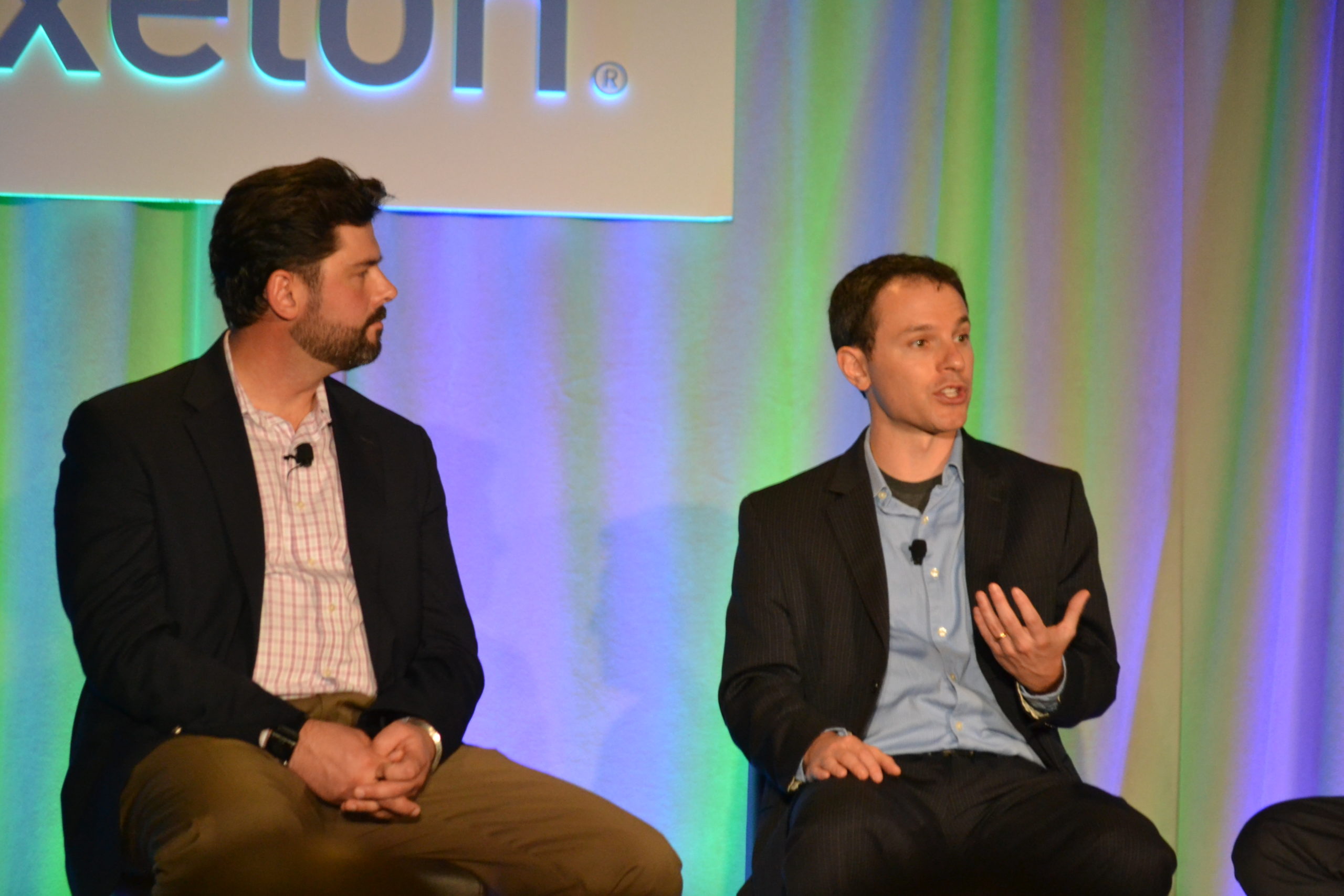Today, with a flick of a few fingers on your iPhone, you can adjust your thermostat, order lunch or even turn on your car. While some raise privacy and other concerns, this is all quickly becoming accepted — and for industry leaders, the question is quickly becoming how to adjust and take advantage of these advances to improve services to consumers.
In a panel at Exelon’s third Innovation Expo, held at M&T Bank Stadium Tuesday, Exelon CEO Chris Crane, General Electric Energy Management CTO of Software Jeremiah Stone and Nest Director of Energy Products Ben Bixby talked about the growing sphere of influence of the “internet of things.”
The smart house is what customers are clamoring for. They want reliability, but they want it for next to free.
“The internet of things for us is core to helping customers run their businesses better and therefore core to us running our business better,” Stone said.
Stone discussed how web-based analysis and functions are changing how GE’s utility customers operate, with an eye toward distributed generation, or small-scale, often renewable power generation.
“One of the discussions we have with the customers is what is the changing role of the grid,” he said.
At the same time, there are services like Nest aiming to use the grid more efficiently. The Google-owned thermostat maker’s devices learn over time when residents tend to come home and what temperatures they prefer, adjusting the home’s temperature accordingly. Alternately, users can control the thermostat from afar via mobile app.
“The internet of things is our strategy for growth,” Bixby said plainly.
Bixby also founded MyEnergy, which Nest acquired last year. But for Nest, he said, the route to market dominance wasn’t necessarily easy. Long before he was sharing the stage with the CEO of Exelon, when Nest was first getting off the ground in 2011, the makers met with energy companies. It didn’t go too well.
“We were laughed out of a lot of rooms for good reason,” Bixby said. “We were a $250 thermostat in a world where there were no $250 thermostats.”
We’re not going to build streetlights, we’re not going to build breakers … but all these things are coming online.
However, in recent years, Chicago-based Exelon, which owns BGE and Constellation Energy and recently came to an agreement to acquire Washington-area utility Pepco, has come around, investing seed money in companies pursuing more efficient use of the grid, Exelon’s Crane said.
“It’s not that we want to be a long-term shareholder in these new technologies, but it’s a way we want to build a trust, a partnership in how these things will work,” Crane said. “It’s got to be a mutual trust and a mutual cost and benefit approach.”
That trust works both ways, Nest’s Bixby said.
“We’re not going to build everything. We’re not going to build streetlights, we’re not going to build breakers … but all these things are coming online,” he said. “I haven’t the faintest clue how a nuclear power plant works.”
For Crane, products like Nest’s thermostat and Chamberlain’s garage door openers answer what Exelon’s utility customers are looking for.
“The smart house is what customers are clamoring for. They want reliability, but they want it for next to free,” he said. The key problem to be solved, he said is, “How do you put the backbone of the system in that would get to the stuff … and still not put too much of a burden on the disposable income of our consumers?”







